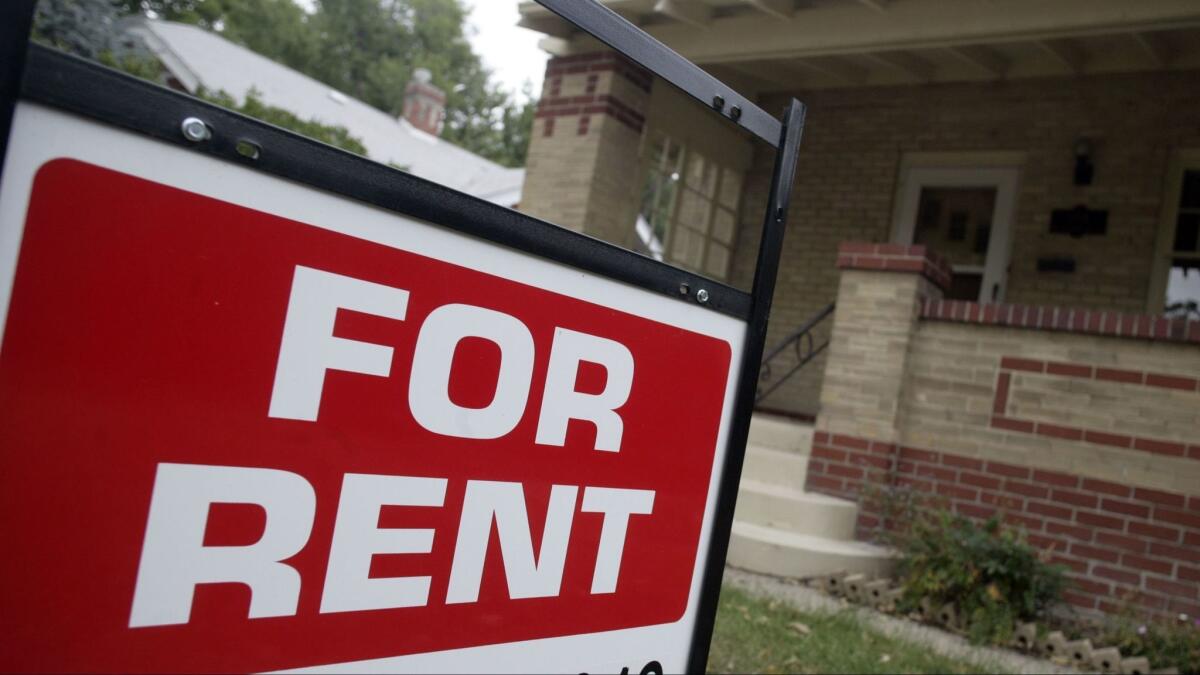You may be good with money, but if sister didn’t ask your opinion, butt out

Dear Liz: My sister and her husband are in their 80s. They are not in the greatest health but still able to live on their own. They’ve had some bad luck financially in the past. Last year they decided to convert part of their property to serve as a short-term rental. I questioned the advisability and legality of this. I was told they had checked and it was all right legally. They proceeded, but it wasn’t legal and their homeowners association shut them down. They have now decided to rent the space month-to-month through a property management firm as the HOA will allow rentals of one month or longer.
I shared my experience with rental property, which has been very mixed. Busybody that I am, I also provided information from a friend whose family had invested in rental property. My brother-in-law insists that he had a good experience many years ago with rentals. Am I wrong to call this a bad idea? Should old people try to recoup the money they put into their ill-advised initial rental attempt with another ill-advised rental attempt?
Answer: The answer to both questions is most likely, “It’s none of your business.”
You didn’t indicate anywhere in your letter that your sister or brother-in-law had sought your opinion. You also didn’t mention any signs that they may suffer from diminished capacity or any other cognitive problem that would require intervention.
What you did do was call yourself a busybody. You might want to reflect on what causes you to repeatedly offer advice to people who aren’t interested in hearing it. Those of us who are “good with money” often feel justified in lecturing those who aren’t, or who have had (as you put it) bad luck financially. Our advice is seldom welcomed, though, and can be more about making ourselves feel superior than really helping someone else. Giving unsolicited advice is actually a terrible habit, and a hard one to break since it’s so deliciously enjoyable (although not for the recipient, obviously).
If we want our opinions to truly matter, we should be more sparing with them. We can start by proffering advice only when it’s specifically requested. When we’re tempted to make an exception to this rule, we should do so only after careful thought and preferably after consulting with a friend who already is in the habit of keeping her opinions to herself. We’ll likely discover what she’s already learned, which is that our meddling usually isn’t appreciated.
When to consider creating a trust
Dear Liz: You’ve written about trusts recently, but I’m confused. What are the benefits of creating a trust and putting all of your assets in it? Does it make sense for someone in their 30s and without any major assets, such as a house, to create a trust? Will I need to create a new trust if I get married?
Answer: There are many different types of trusts, but they’re typically designed to protect assets in one way or another. If you don’t have a lot of assets, you may not need a trust — at least not yet.
One of the most common types of trusts is a revocable living trust, which is designed to avoid the potential costs and delays of probate, the court process that otherwise follows death. In some states, probate is not that big a deal, while in others, including California, probate can be lengthy and expensive.
It’s often possible to avoid probate using beneficiary designations on financial accounts and, in some states, on property including vehicles and real estate. That may be sufficient for small estates or people just starting out. Once you have a home and some assets you’ll want to investigate whether a living trust makes sense.
Protect yourself as interest rates rise
Dear Liz: I use two nefarious financial institutions. When the Federal Reserve raised the interest rates, these institutions immediately raised their loan rates. Did they raise the depositor rates? No. In addition, they have credit cards that have 25% interest rates. Where is our government? We are being fleeced. Tell us what we could do about this.
Answer: Banks are usually much slower to pass interest rate increases along to savers than they are to borrowers, and regulators aren’t likely to intervene to change that. You can help protect yourself as a consumer by avoiding variable-rate debt, including credit card debt, and searching out better savings rates from online banks. Currently, several online banks offer FDIC-insured savings accounts with rates of around 1.5%, which is about 10 times the national average.
Liz Weston, certified financial planner, is a personal finance columnist for NerdWallet. Questions may be sent to her at 3940 Laurel Canyon, No. 238, Studio City, CA 91604, or by using the “Contact” form at asklizweston.com. Distributed by No More Red Inc.
ALSO
A husband’s death. A pile of bills. Now what?
An inexpensive lawyer in the suburbs is fine for smaller estates
How to improve your credit score and whether you should bother






